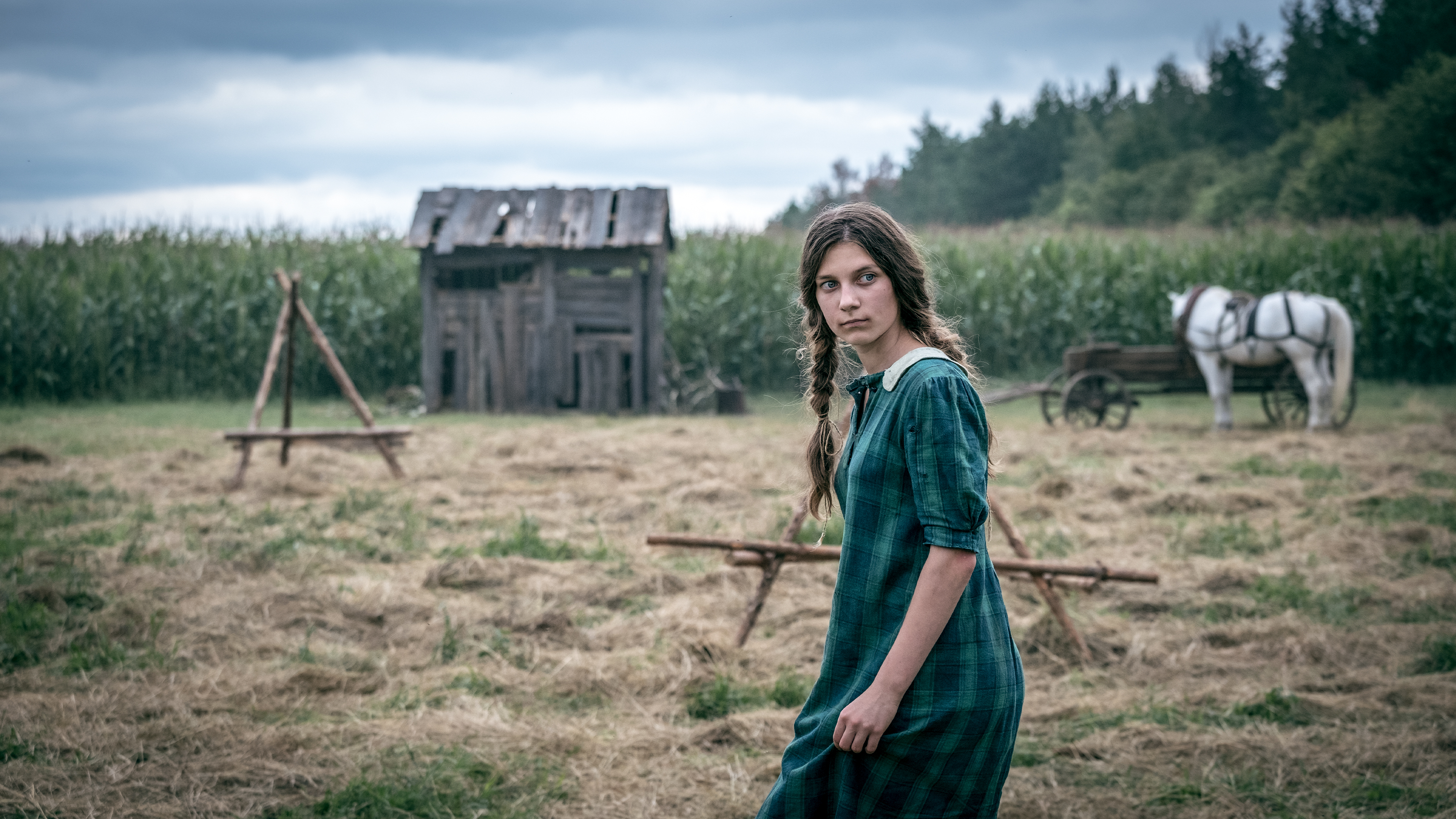Netflix’s latest historical drama, My Name Is Sara, has left audiences around the world shaken and deeply moved. Based on the true story of Sara Goralnik, a 13-year-old Jewish girl who survived the Holocaust by living under a false identity, the film is being hailed as one of the streaming giant’s most powerful releases in years.
A Girl Forced to Erase Herself
The story begins in 1942, when Nazi forces occupy eastern Poland (now Ukraine). After her family is brutally murdered, young Sara Goralnik flees into the wilderness, alone and terrified. Her only chance of survival? To become someone else.
Under the new name Manya Romanchuk, Sara hides in plain sight, posing as a Christian orphan and finding refuge with a farming couple in the Ukrainian countryside. Every word, every gesture, every prayer must be perfect — one slip could mean death.
“She had to bury her true self,” says director Steven Oritt. “Imagine being thirteen and not allowed to be who you are — even in private.”

A Story of Survival and Unimaginable Strength
My Name Is Sara doesn’t shy away from the harsh realities of war. The film captures not just the violence of the Nazi occupation, but the psychological torment of living a lie.
Sara endures hunger, isolation, and constant fear of exposure. She learns to blend in — to milk cows, to speak Ukrainian, to cross herself — all while suppressing her grief and guilt.
Yet through it all, her courage burns quietly. She watches, she adapts, and she survives.

Behind the Film
Directed by Steven Oritt and starring Zuzanna Surowy in a breakout performance, the film was shot on location in Poland and Ukraine, adding authenticity to every frame.
The screenplay, inspired by interviews with the real Sara Goralnik before her death in 2018, remains faithful to her story — a testament to human endurance under unimaginable conditions.
Oritt spent years researching Sara’s life, speaking with her family and Holocaust historians. “Sara wasn’t a soldier or a spy,” he said. “She was just a girl. But her survival — her will to keep living — is one of the most extraordinary acts of resistance I’ve ever encountered.”
Why Viewers Can’t Look Away
Since its release on Netflix, My Name Is Sara has been praised for its emotional realism and restraint. Unlike many Holocaust dramas, it avoids melodrama and focuses on the intimate human experience of survival.
Viewers describe it as “haunting,” “quietly devastating,” and “impossible to forget.”
“It’s not just another war movie,” one reviewer wrote. “It’s a reminder of what it means to keep your humanity when the world around you has lost its own.”
Remembering the Real Sara
The real Sara Goralnik eventually emigrated to the United States after the war, where she built a new life and shared her story with students and educators. She never forgot her family or the faith she was forced to hide.
Through this film, her memory endures — a message of resilience, courage, and the cost of survival.
“I had to forget my name to stay alive,” Sara once said. “But I never forgot who I was.”
A Must-Watch
My Name Is Sara isn’t just a film — it’s a haunting tribute to those who endured the unthinkable and a stark reminder of the power of truth, even when it must be hidden.
Once you watch, you’ll never forget her name.
News
“HE TOOK MY SON — NOW HE WANTS HIS LIFE BACK” — GRIEVING FATHER VOWS WAR AS JON VENABLES SEEKS FREEDOM
View 4 Images Ralph Bulger has begged prison officials to keep Jon Venables locked up(Image: Ken McKay/ITV/REX/Shutterstock) James Bulger’s dad…
“HE WAS THE STRONG FRIEND” — Young Noble’s D-e-a-th Forces a Reckoning as Ex-Manager Steve Lobel Sounds the Alarm
The hip-hop world is still reeling from the loss of Young Noble, a founding member of The Outlawz and one…
“I CAN’T KEEP LIVING LIKE THIS ANYMORE” — Young Noble’s Final Words Surface After Outlawz Rapper D-i-e-s at 47
Rapper Young Noble, a key member of the iconic hip-hop group The Outlawz, has tragically passed away at the age of…
“THE FINAL MOMENT NO ONE SAW COMING” — Young Noble’s Last Hours Revealed as Jadakiss Pays Emotional Tribute to 2Pac
The hip-hop community has been rocked by the passing of Young Noble, a core member of Outlawz and one of…
“OUTLAWZ IN MOURNING” — Young Noble De-ad at 47 as Edi Mean Breaks Silence on the Tra-gedy No One Saw Coming
The hip-hop community has been plunged into grief following reports that Young Noble, a core member of Outlawz and one…
“GIOVANNI IS GONE” — DNA CONFIRMATION ENDS ALL HOPE AFTER 60 HOURS OF AGONY
The waiting is over — and the answer is the one no parent ever survives. After 60 agonizing hours suspended between…
End of content
No more pages to load









